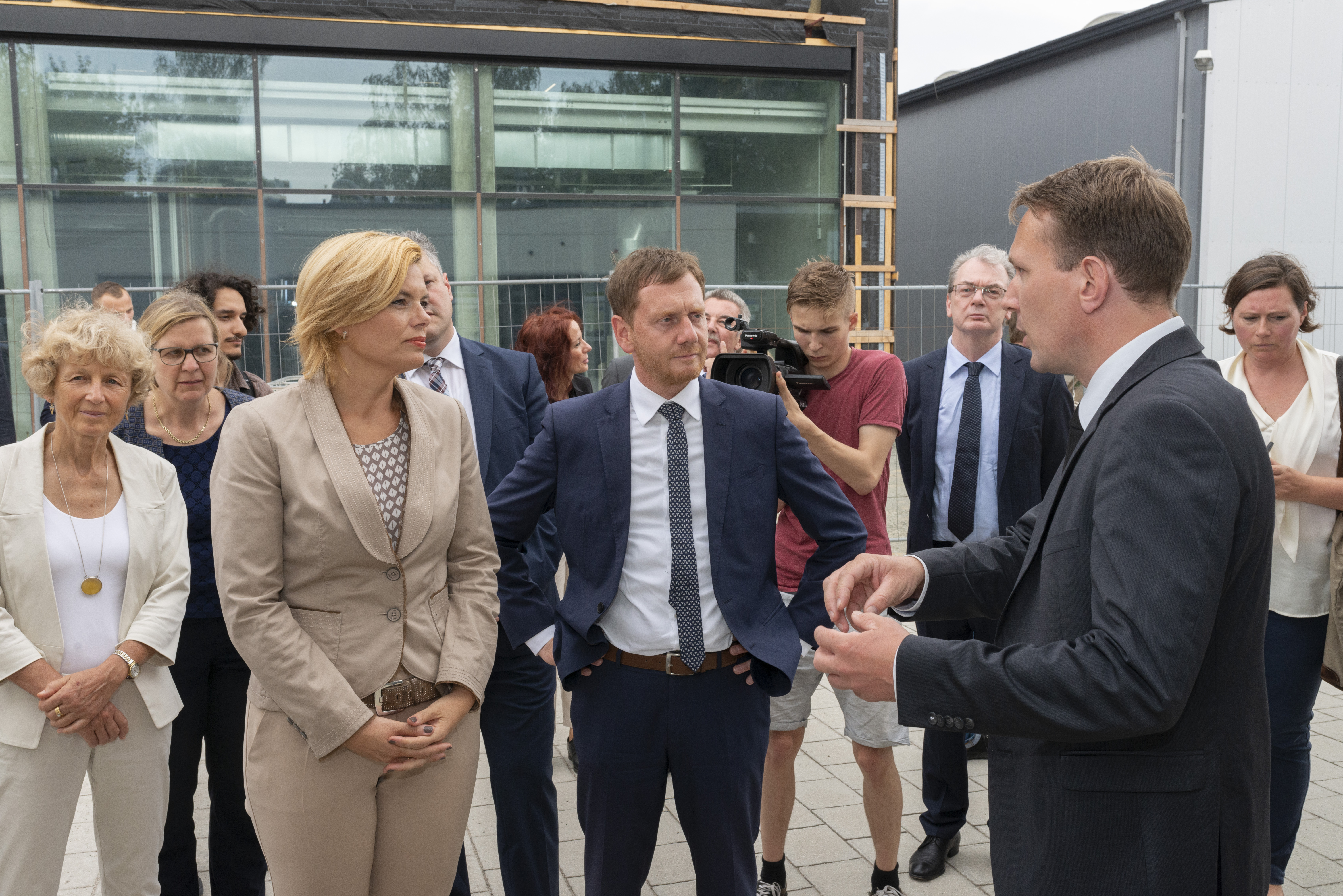Local politics: Federal Minister Klöckner and Saxon Prime Minister Kretschmer gain insight into biomass research
"Digitalization and further possibilities of climate protection" - this was the motto of the visit of the Federal Minister of Food and Agriculture, Julia Klöckner, and the Prime Minister of Saxony, Michael Kretschmer, to the DBFZ (German Biomass Research Centre) in Leipzig. On a tour of the research site, the top politicians were given an insight into the intensive research activities and the newly created infrastructure of the research centre.
At the DBFZ in Leipzig, a variety of projects are being carried out to investigate the influence of progressive digitisation on practical biomass research, and the influence it can have in the future. For example, a straw incineration plant was equipped with numerous sensors and a PLC control system that enable fully automatic operation and permanent monitoring of the plant technology. The digitalization makes it possible to monitor the plant remotely from anywhere in the world with an Internet connection. It is also possible to carry out necessary changes to the control technology via remote maintenance. This leads to time and cost savings and minimizes unwanted downtimes. The development of a "smart" wood-burning stove and interactive online tools for calculating biomass potentials are just a few examples of the ongoing digitization in the daily research work of the DBFZ.
On the tour of the DBFZ site, the Federal Minister Julia Klöckner and Prime Minister Michael Kretschmer were able to visit the research biogas plant and other test beds as well as the newly built DBFZ pilot plant hall financed by the Federal Ministry of Food and Agriculture. Starting next year, extensive applied research in the field of energetic and integrated material biomass use will be possible here on a completely new scale. "Sustainable energy system transformation works with clever ideas, digital innovations and the use of biomass. Unlike wind and solar energy, biomass is available in a very flexible way, regardless of the weather or time of day. It is also easy to store. It is with full conviction that my ministry and I are therefore co-financing the DBFZ as the central federal research institution for all research fields in the field of bioenergy with six million euros a year. Additionally, we are providing another 15 million euros per year from our agricultural budget for an extension building so that we can create the best conditions for applied biomass research. There will be no way around the use and further development of digitization in this area in the future. All the best to the employees of the DBFZ for their important work," said Federal Minister Julia Klöckner.
Minister President Michael Kretschmer adds: "The work of the researchers here at the DBFZ is an important contribution to the energy revolution in Germany. For more than ten years, solid, liquid and gaseous bioenergy sources have been successfully researched here. In particular, how they can become part of an integrated system of renewable energy generation. Since the establishment of the DBFZ, the number and installed capacity of agricultural biogas plants in Saxony have almost doubled. This development is also a result of the rapid practical use of new scientific findings. Decisive for the further development of a sustainable and future-oriented environment and agriculture are not only research results, but above all their transfer into practical application. This is also the goal of the Saxon Future Initiative simul+, which was launched in 2016.
Smart Bioenergy – innovations for a sustainable future
The DBFZ works as a central and independent thinker in the field of energy and material use of biomass on the question of how the limited available biomass resources can contribute to the existing and future energy system with sustainability and high efficiency. As part of the research the DBFZ identifies, develops, accompanies, evaluates and demonstrates the most promising fields of application for bioenergy and the especially positively outstanding examples together with partners from research, industry and public. With the scientific work of the DBFZ, the knowledge of the possibilities and limitations of energy and integrated material use of renewable raw materials in a biobased economy as a whole should be expanded and the outstanding position of the industrial location Germany in this sector permanently secured – www.dbfz.de/en.

